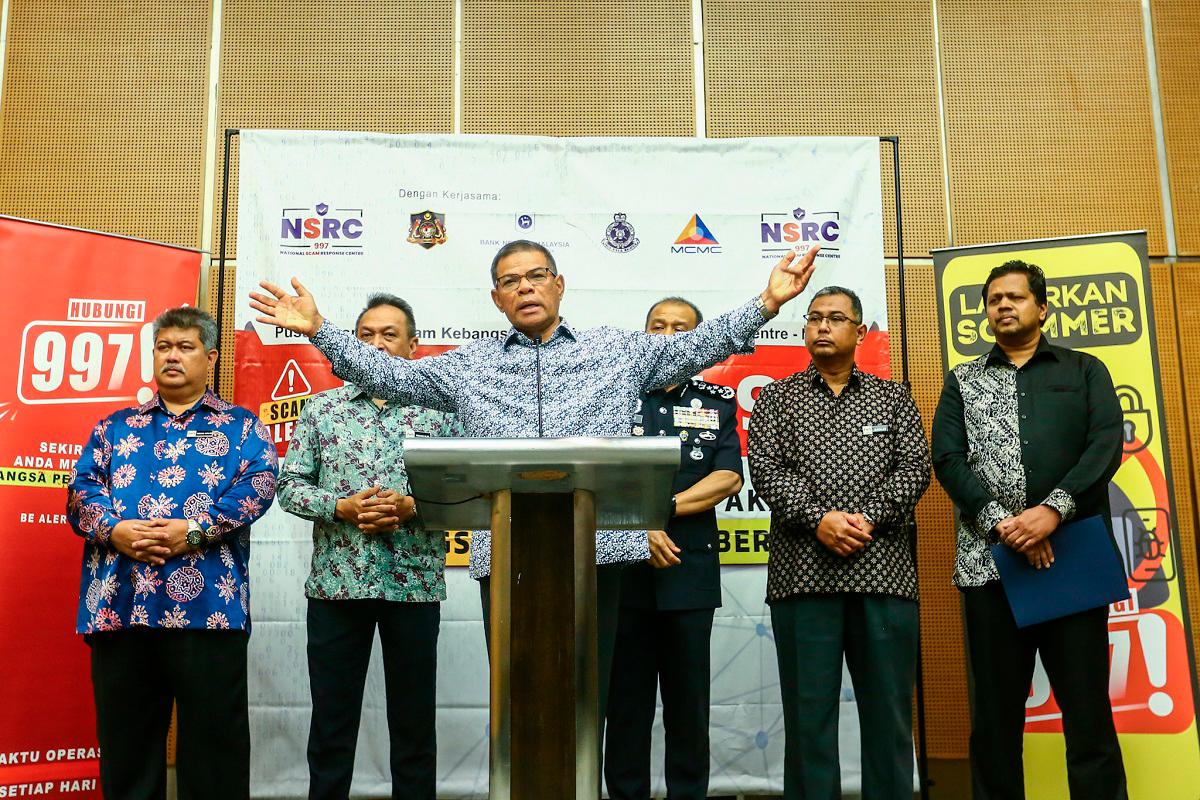KUALA LUMPUR: With scam-related losses climbing to RM1.5 billion and the National Scam Response Centre (NSRC) fielding up to 500 calls a day, the government is ramping it up with a major operational upgrade. In September, the NSRC will relocate to a larger, purpose-built facility in Cyberjaya.
Home Minister Datuk Seri Saifuddin Nasution said the move will allow the centre to function more effectively with increased staffing and better support mechanisms.
“Alongside enforcement improvements and legislative amendments, public awareness programmes will be intensified to address the increasingly complex nature of scams,” he said during a press conference yesterday.
Saifuddin said the new facility offers a more spacious, accurate and conducive working environment which will allow the centre to centralise its key operations.
He added that the premises will be equipped with all necessary components, including a physical complaints counter.
“Currently, NSRC operations are supported by the police and other partner agencies. In the initial phase, 40 personnel from the Commercial Crime Investigation Department will be assigned to the centre. We are aware of the staffing shortage within the commercial crime unit, but we are making use of internal resources as a temporary measure.”
He added as of now, 18 officers are handling calls simultaneously, and this number will be increased in stages to meet growing demand.
“The move will also involve the addition of 139 officers and greater inter-agency collaboration. At present, the centre operates with four core agencies but two more – the Domestic Trade and Cost of Living Ministry and the Securities Commission Malaysia – will soon come on board.“
Saifuddin said the government amended several laws last year, including introducing Sections 424A and 424B in the Penal Code to increase penalties – with fines raised from RM1,000 to RM10,000.
“In the past, only an inspector could freeze an account under the Criminal Procedure Code, but now a sergeant has that authority. We’ve simplified the process,” he added.
Saifudin highlighted that the centre’s mechanisms will also be improved, including the ability to handle calls in four major languages – Bahasa Malaysia, English, Mandarin and Tamil – to better serve the public.
He said complaints received by NSRC fall into two categories: general inquiries and real scam cases, the latter involving financial fraud, such as online scams, phishing or malware.
“The pattern of victims includes pensioners who have lost their retirement savings and working professionals. These are real financial crimes affecting everyday Malaysians. The centre operates 24/7 to respond to public complaints but the convention enables 24/7 cooperation at the international level, facilitating intelligence exchange when cross-border incidents occur.”
He also announced that Malaysia is set to sign the Budapest Convention on Cybercrime in Vietnam at the end of October, a move that will strengthen real-time information sharing between countries.
Saifuddin added that the upcoming Asean Ministerial Meeting on security in September will list online scams as one of its 10 key agenda items, with emphasis on capacity building, intelligence sharing and coordinated operations among member states.
“We will also intensify awareness campaigns as cybercrime is becoming increasingly sophisticated. Enforcement, prevention and legislative updates must go hand in hand to ensure our efforts to combat scams and fraudulent activities are truly effective.”









